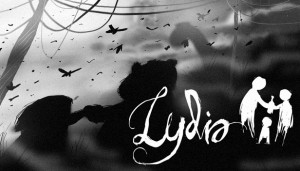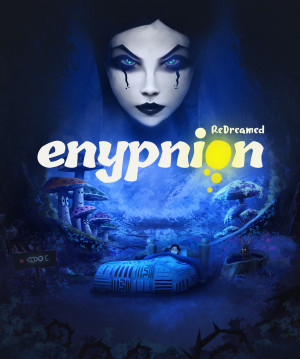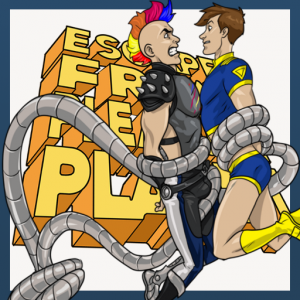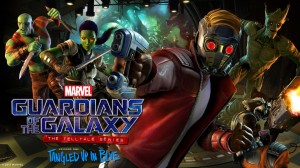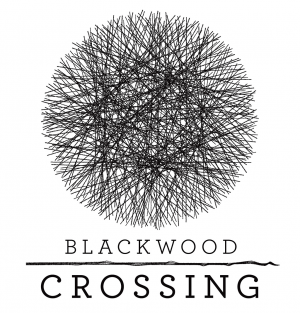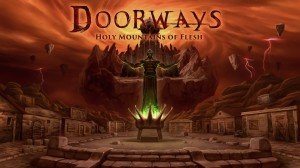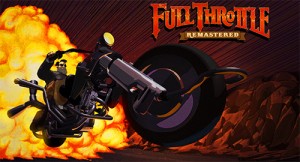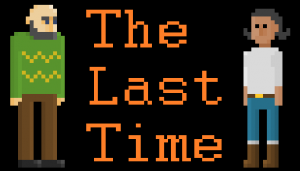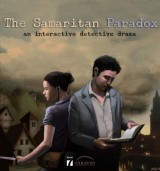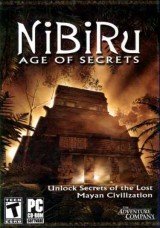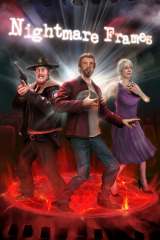Review for Lydia
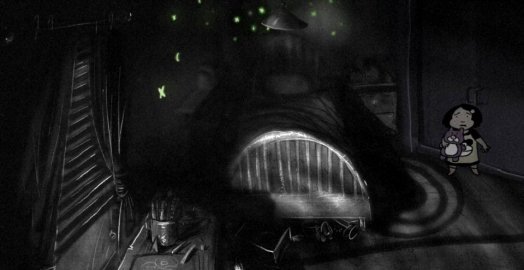
While I've certainly played some morbid and melancholy adventure games over the years, none of them have been quite as deeply depressing as Lydia. A feeling of pure hopelessness surrounds this poor girl's story, and as she delves deeper into a surreal journey with her misguided stuffed animal, players discover the increasing severity of her fractured world. It's a poignant experience, for sure, but it's also emotionally draining and incredibly dark, as well as flawed and occasionally even broken. Although I anticipated where this tale was heading just from its description, I didn't expect it to tackle its central theme of parental substance abuse in such a stark, straightforward manner. Let’s put it this way: I've never played an adventure game where a father graphically explains how he regrets having a child within earshot of his traumatized daughter.
The game follows its titular heroine as she deals with some incredibly grim aspects of her childhood, including wholly irresponsible parents who clearly don't have her best interests at heart. After being sent to her room as a group of adults gather to blast music and drink the night away, among other things, the little girl seeks refuge in a fantastical world alongside her stuffed buddy, Teddy. Together, they seek the monster that looms over every aspect of the child's life, one that her best friend, who is able to walk and talk in their alternate version of reality, promises to locate. Yet although Teddy claims this magical land offers nothing but fun and adventure, it's quite obvious that sinister things also call this foreboding place home. Before long, Lydia is conversing with a hideously oversized frog (who bemoans his failure to stay in shape), an alcoholic knight who can barely stand up straight, and a camping court jester who looks a lot like dear ol' dad.
Lydia unfolds over a series of short semi-chronological chapters, most of which require you to navigate simple challenges or conversations that drive the story forward. Instead of a traditional adventure game, one that involves in-depth puzzle-solving or inventory management, you'll only interact with whatever's available at the moment, whether small items or other characters spread across no more than one or two side-scrolling screens at any given time. Getting stuck or stumped is next to impossible, and the obstacles the game does throw at you aren't overwhelmingly difficult. Instead, players are encouraged to engage with the little girl, her stuffed bear, and the cast of miserable individuals who make up her world. Think of it as an interactive storybook that metaphorically deals with hardcore, real-world issues that affect people every day of their lives.
Helping pull you into this world of endless misery is an affecting art style that's heavy on gritty, grainy, black-and-white imagery. The fantasy world contains a litany of frightening images, ranging from deranged oversized toys and shambling father figures to bright-eyed spectral partygoers. There are splashes of color here and there – Teddy is a pleasant shade of purple, for example – and they are often employed to help point you in the general direction of interactive items or places Lydia can explore. Figuring out what you can and cannot manipulate isn't altogether difficult; the cursor will handily transform itself whenever you hover over a hotspot. However, each scene only features a handful of interactive elements, so it's nice that the developers give you a gentle nudge in the right direction should you find yourself, for whatever reason, stumbling around in the dark, so to speak.
Unfortunately, that cursor doesn't always do its job. During my journey, it broke no fewer than five times, forcing me to exit entirely so that I could continue. For example, I frequently encountered moments when the game’s cursor and the Windows cursor overlapped each other, preventing me from further interacting with the game. Sadly, Lydia doesn't have a manual save system, so whenever you quit you're forced to start the current chapter all over again. Although the experience is relatively short, the lack of a proper save system resulted in a number of frustrating moments when the cursor decided it no longer wanted to do its job. This issue may end up getting resolved in a patch, but if not it's something to keep in mind when you're venturing into the world alongside this sad little girl. After all, nothing pulls you out of a story quite like a wonky user interface.
For the most part, Lydia handles its extremely delicate subject matter with loving grace. As you trace the history of the girl's family, each chapter offers a look at a different time in the protagonist’s problematic life. In fact, inexplicably, some of them take place when Lydia is older than her current real-world self. During one sequence, she's a little girl navigating a house party filled with ghostly entities and deranged occupants. But before that, she's a young adult struggling with a tragedy that occurs while on her way to a party with her friends. Lydia's endless search for the proverbial "monster" runs throughout, and depending on your interpretation of key scenes, that beast could be one of several things. The game doesn't offer up any easy answers, and when it all came to a close, I was left wondering if I’d made the right decision (of two available) for poor Lydia, even though it ultimately doesn’t impact the closing sequence.
Instead of Lydia, Teddy, and her impossibly dysfunctional family delivering the story through voice-over, the characters speak in what can only be described as babytalk. It instantly reminded me of how Charlie Brown's teacher addressed her students, except not quite as monotone. While Lydia's dialogue sounds like an infant struggling to make sense of spoken language, her parents often come across as intoxicated or medicated. This approach takes some getting used to – and it can overstay its welcome during the more profound sequences – but it often adds some substance to the written dialogue. Additionally, the game sports an impressive score, ranging from horror movie-style orchestration (both lightly ambient and hideously intense) to whimsical acoustic folk, depending on what emotion the scene is attempting to elicit. Cleary, the developers spent a lot of time with the sound design, which strengthens the overall experience.
While the story remains strong and believable throughout, it isn't without a few problems. First, there's an unusually large number of typos sprinkled throughout the subtitles, ranging from simple grammatical issues to full-blown misspellings. Some people might not view this as a big deal, but it often distracted me from a scene's emotional weight. Second, the use of foul language almost seems forced and out of place. Sure, Lydia strives for realism in a way few adventure games do, but choosing when and where to toss in heavy language shouldn't be taken lightly. If used indiscriminately, it can rob dialogue of its impact, and it happens here on occasion. Sometimes when you encounter unnecessary F-bombs in the same stretch of dialogue, you wonder if the writers were just being lazy or incapable of expressing themselves in different ways.
Perhaps Lydia’s biggest problem is simply its length. Each chapter is painfully short, and while it's clear that the little girl and her parents have a very strained and broken relationship, it would have been nice to see a bit more interaction between them outside of the fantastical sequences. The time jumps are also a little jarring; had the developers tackled a few more moments in Lydia's earlier years first, her never-ending quest to find this so-called "monster" would have made more sense. Plus, Teddy's abrupt disappearance at one point would have felt more justified, instead of having Lydia bid farewell to her stuffed buddy after only a couple failed adventures, robbing the scene of much of its potential impact. As important as Teddy appears at the beginning of the game, he almost seems like an afterthought by its conclusion. So while the writers certainly laid the groundwork for a phenomenal story, the foundation isn't as solid as it could be.
If you're in the mood for a gameplay-lite adventure that deals with real-world problems, particularly those of a darker nature, then Lydia would love for you to spend a few hours wandering around its dysfunctional landscape. And though the story does stumble a bit here and there, and it could have used a few extra chapters to help flesh things out, the beautifully demented artwork, the unusual approach to dialogue, and a truly remarkable score help smooth out the lumps and bumps you'll encounter along the way. There are few games on the market that attempt to deal with how addiction and emotional abuse can wreck a family, and Lydia does an admirable job of presenting this scenario in a way that treats it with the respect it deserves, instead of merely exploiting it to keep us entertained.


